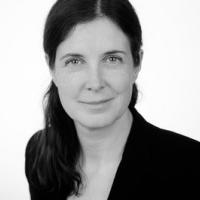The Warsaw Mechanism for Loss and Damage associated with Climate Change
- Event
- Date
-
- Location
- Berlin, Germany
- Speaker
"Loss and damage – what can the new mechanism offer?" was the topic of the 26th Climate Talk on 7 April 2014. The event, jointly organised by the Ecologic Institute and the German Institute for International and Security Affairs (SWP), featured guest speakers Ilka Wagner (BMUB), Sabine Minninger (Brot für die Welt) and Sönke Kreft (Germanwatch).
After the 2012 decision in Doha to negotiate the issue of loss and damage associated with climate change, a new international mechanism was decided on at the Warsaw summit at the end of 2013: the “Warsaw International Mechanism for Loss and Damage associated with Climate Change”. A work program for the mechanism was discussed in March 2014 in Bonn.
Three aspects in particular were discussed at the Climate Talk: how the Warsaw mechanism can help nations impacted by climate change, how it should be developed, and which role it could play in the climate negotiations in 2015 and beyond. Can the loss and damage mechanism be detrimental to the efforts to reach a consensus on a new global agreement by broadening the focus of the negotiations? Or could the new topic advance the negotiations by giving room to pressing questions while bundling interests? Questions also arose with regards to the link to the issue of adaptation, the exact definition of loss and damage, and the financial implications (e.g. claims for compensation or assistance). Furthermore, the role of the UNFCCC in this context has to be defined.
Some stakeholders see fundamental differences between adaptation and topic of loss and damage, even though a clear differentiation of these is not always possible. The importance of addressing threats to the territorial existence of island nations due to rising sea levels is, however, of great concern. According to the IPCC assessment report, damages resulting from extreme weather events are expected to increase worldwide. Considering the impact of such events on certain nations, these countries will continue demanding that loss and damage is discussed as a separate topic and as part of the adaptation negotiations under the UNFCCC. Furthermore, stakeholders pointed to the need to also cooperate with other UN organizations.
Furthermore, the current pace of the UN negotiations is in the eyes of some not suitable for a timely reaction pertaining to losses and damages. However, development cooperation or for example the International Climate Initiative (IKI) already address loss and damage, and there are funds available for short-term, local assistance.
It is expected that despite the new mechanism, loss and damage will remain a challenging issue in the climate negotiations, since it lends itself well to political polarization. Demands for financial compensation for loss and damage associated with climate change are politically charged, and therefore, they might make the cumbersome negotiation process even more difficult.
Following the event, discussions were continued in a relaxed atmosphere in a nearby restaurant.



